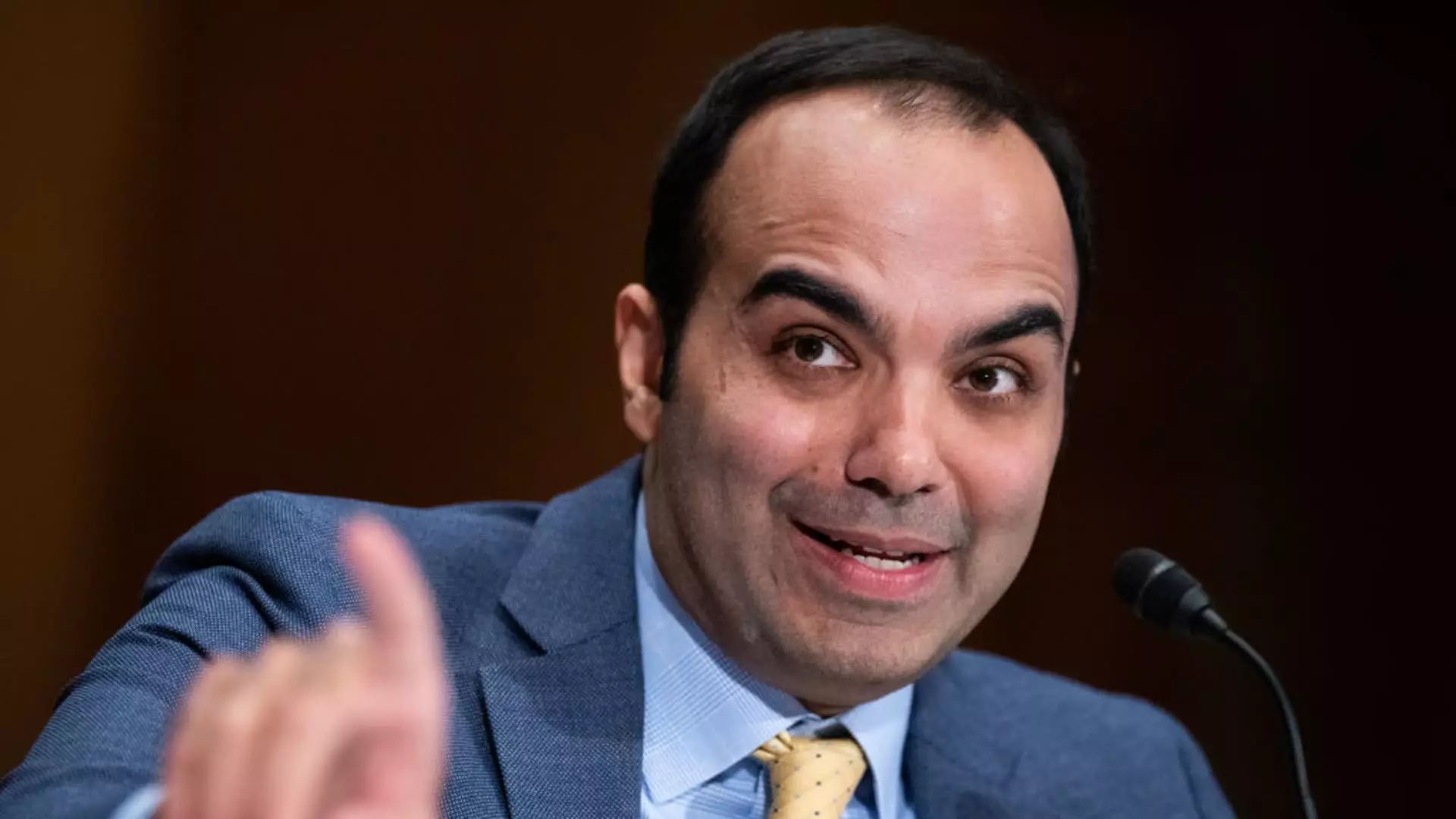The recent legal action taken by the Consumer Financial Protection Bureau (CFPB) against Zelle’s operator and its leading banking partners has ignited a critical conversation about digital payment security and fraud. As one of the country’s fastest-growing peer-to-peer payment platforms, Zelle, operated by Early Warning Services in collaboration with major banks like JPMorgan Chase, Bank of America, and Wells Fargo, is now under scrutiny amid alarming fraud statistics. With allegations of inadequate fraud investigations and insufficient reimbursement mechanisms, the CFPB aims to hold these firms accountable for what it deems a failure in consumer protection.
The Scale of the Problem: Alarmingly High Fraud Losses
Since its inception in 2017, Zelle has processed a staggering volume of transactions, accumulating over $806 billion last year alone. However, the dilemma arises from the reported losses attributed to fraud, which have surpassed $870 million for clients of the three banks. This statistic highlights a significant risk associated with the convenience of instant payments. While Zelle promotes itself as a swift method for transferring funds, its rapid speed may inadvertently benefit cybercriminals, who exploit the platform’s perceived safety limits.
Despite the vast number of transactions, analysis reveals a troubling trend; banks have allegedly reimbursed a mere 38% of fraud disputes raised by customers. This has encouraged intense criticism from lawmakers, with some suggesting that the banks emphasize profit over consumer protections. They argue that the systemic flaws in Zelle’s operational model create an environment where fraud is not just possible but is, in fact, flourishing—a notion that could undermine trust in digital payment systems as a whole.
The Regulatory Approach: CFPB’s Targeted Legal Strategy
Under the Biden administration, the CFPB has increasingly positioned itself as a staunch advocate for consumer rights, challenging banking practices that it perceives as exploitative. The lawsuit against Zelle’s major players appears to be a pivotal move in this larger strategy, aiming to compel banks to enhance their fraud protection measures. CFPB Director Rohit Chopra criticized the banks for rushing to deploy Zelle without robust safeguards, stating that their negligence has allowed fraudsters to thrive.
The CFPB’s approach underscores a shift in the regulatory landscape, focusing not only on punitive measures but also on systemic reforms intended to bolster consumer confidence. Nevertheless, the move has met with fierce backlash from the banking industry. Institutions argue that the CFPB’s actions could have unintended consequences, such as increasing consumer fees and stifling competition among smaller financial entities that rely on platforms like Zelle.
The Complexity of Fraud: Authorized Payments vs. Scams
One factor complicating the landscape of Zelle fraud is the distinction between unauthorized transactions and scams. Banks often classify many reported fraud cases as scams where customers have authorized transactions under misleading pretenses, resulting in a lack of obligation to reimburse. This loophole creates a frustrating experience for victims, as their claims may be dismissed due to technicalities, leaving them grappling with substantial losses without support.
The CFPB’s contention rests on the assertion that banks have not conducted adequate investigations into these incidents. Consequently, they risk alienating a significant segment of their customer base who feel unprotected. This situation illustrates the challenges that arise within digital payment ecosystems, where technological advancements must be matched by rigorous consumer protection measures.
In light of the CFPB’s accusations, Early Warning Services—responsible for managing Zelle—has defended its practices, asserting that it adheres to industry standards regarding fraud prevention and reimbursement policies. They have criticized the CFPB’s claims as misleading, arguing that many reported fraud cases are exaggerated and do not reflect the realities of the operations associated with the platform. The company insists that they are prepared to contest the lawsuit vigorously, highlighting what they see as the danger of governmental overreach in managing the dynamics of technological innovation in finance.
Moreover, as the digital payments landscape continues to evolve, the discourse surrounding consumer safety is becoming increasingly paramount. Stakeholders from various sectors must collaborate to develop comprehensive frameworks that address vulnerabilities while promoting financial inclusivity and innovation.
The ongoing debate around Zelle’s fraud issues serves as a crucial learning point for the entire financial industry. As customers increasingly adopt digital payment methods, financial institutions must find a balance between facilitating ease of access and ensuring robust consumer protection. For the CFPB, this lawsuit is not just a legal battle; it’s a chance to enforce accountability and possibly reshape how digital financial services operate. Ultimately, as both sides prepare for the outcomes of this confrontation, the hope remains that consumers will emerge better protected and that the industry’s resilience will be tested and fortified for the digital age.

